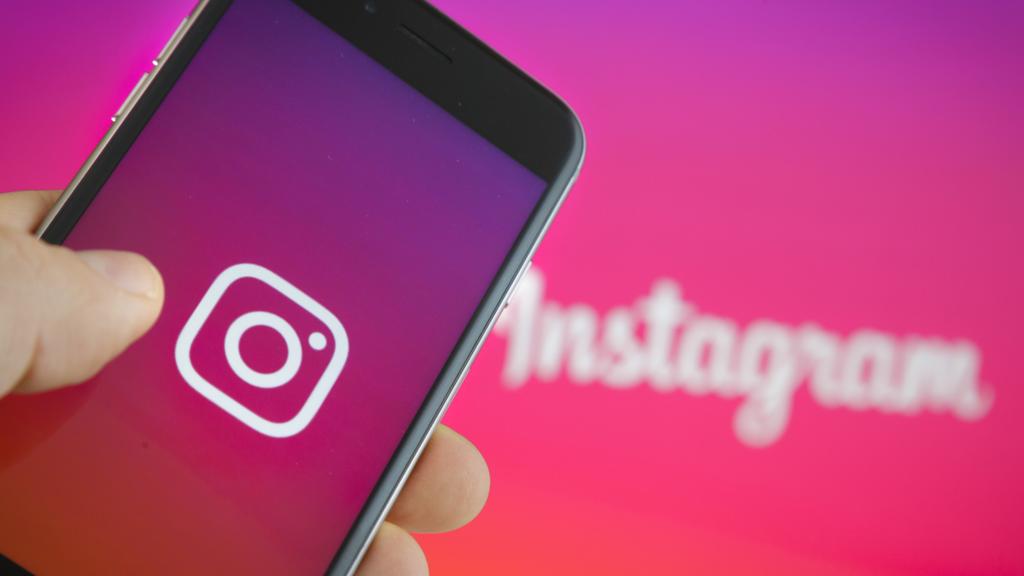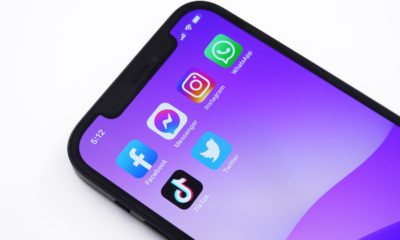Digital Culture
How Instagram Is Working To Protect Younger Users


According to Instagram executives, a new, kid-friendly social platform is set to be created for children under the age of 13.
Instagram’s vice president of product, Vishal Shah, noted the following on a message forum:
“We will be building a new youth pillar within the Community Product Group to focus on two things: (a) accelerating our integrity and privacy work to ensure the safest possible experience for teens and (b) building a version of Instagram that allows people under the age of 13 to safely use Instagram for the first time.”
Current Instagram regulations technically prohibit the app’s usage by anyone under the age of 13, but the vast amount of users makes this rule impossible to enforce correctly. If a child were to download the app, there wouldn’t be any consequences. Even with reporting mechanisms that allow accounts to report other users who are under the age of 13, nobody feels the need to do so.
The main motives behind the idea seem to be child safety, as the announcement came soon after the company came under fire for what appeared to be a spike in cyberbullying and inappropriate interactions between adults and minors. As such, a new AI-based feature that prevents random adults from messaging children was introduced a week ago.
In the product release, Instagram summarized that the new feature uses machine learning technology to cross-reference dm requests with the ages that both profiles used during their signup process.
The same strategy was adopted by Facebook in 2017 when they released a new version of Messenger, which featured various parental controls.
Finally, a recent blog update by Instagram previewed numerous other initiatives, including expanded access to information on Instagram privacy benefits.
Lucy Thomas, Co-Founder of PROJECT ROCKIT, published the following:
“Around the world it’s widely understood that most social media platforms require a 13-year minimum age requirement, but the complexity of age verification remains a long-standing, industry-wide challenge. That’s why it’s positive to see Instagram investing in innovative technologies that can and will create a safer online environment for younger users. By using machine learning to flag potentially inappropriate interactions, improving teen privacy features and DM-ing younger users with realtime safety info, Instagram is equipping young people with tools to be the architects of their own online experience.”
Instagram is widely regarded as the most popular social media platform to date, and they have an enormous burden to maintain the safety of their young users.
Digital Culture
4 Gen Z Card Games to Play with Friends


Gaming has become a trendy pastime for millions of people around the world. However, despite new advancements in PC and console technology, card games are still popular. Statista reports that people from Gen Z showed the lowest levels of enjoyment when playing card games as opposed to millennials and baby boomers.
While this isn’t surprising, as many in the younger generation prefer to play online games like Among Us on their devices, the problem could lie in the fact that they just haven’t found something that appeals to them. With so many games being released today, it’s only a matter of time before they find one that they can enjoy with their friends. Here are some card games that will surely appeal to Gen Z’s taste and sense of humor:
Jungle Speed
An oldy but a goodie, Jungle Speed is a game that requires attention and, as its name suggests, speed. Here, players have to fight to be the first one to grab the totem if someone drops a card identical to theirs, or else they will have to take in all the ones in the discard pile. While there are also special cards, the rules remain relatively the same. If you are looking for something that will get your adrenaline pumping, then this is the game for you.
BONC!
This is a new game that aims to eliminate players one by one. With BONC!, people are given five lives and a deck of cards. When a player drops a card identical to the one put down by the person on their right, that person loses a life. The lower the number, the fewer identical pieces there are of it in the deck. The goal is to eliminate– or “BONC!”– people one by one until a single winner stands. With a few wildcards mixed in, Gen Z players will enjoy this lively game with friends and family.
Incohearent
Gen Z-ers have a catalog of popular memes and quotes in their heads, making Incohearent a funny way to test their knowledge. Here, players are flashed a card with what looks like nonsense words strung together. If said correctly, they form an actual phrase. For example, “hike and even” will become “I can’t even.” These pop culture references will surely appeal to Gen Z and make them laugh as they try to figure out what each card is trying to spell out.
Joking Hazard
This game is quite similar to Cards Against Humanity. Players are tasked to fill in the blanks of a comic strip, and whoever has the funniest adlib wins. Created by Cyanide and Happiness, this is a raunchier game best suited for older members of the generation. Bringing in dark and dirty humor, Joking Hazard will be a blast to play with friends on a chill night in.
Other honorable mentions not listed in this article are Coup, Uno, and What Do You Meme. Choosing the right one to play can vary on whether you want something intense and will get your heart racing (like Jungle Speed and BONC!) or something more geared towards lighthearted fun (like Incohearent and Joking Hazard). But there’s no doubt that there surely is a card game out there for every member of Gen Z to enjoy.
Digital Culture
Why Facebook Plans On Changing Their Name


Facebook is the parent company of Instagram, WhatsApp, Facebook (the social site), and Oculus VR. Recently, there have been many rumors storming the internet suggesting that Facebook could change the name of its parent company. The announcement of this new name is expected at the company’s annual connect conference that will take place on 28th October 2021.
With a new name, Facebook (the social site), Instagram, and the other platforms currently under Facebook (the company) will now be managed by another Umbrella company. We have already seen this happening with other companies, including Google’s rebrand to Alphabet Inc in 2015 and Snapchat to Snap Inc in 2016.
We also saw Apple rebrand from Apple Computer to Apple Inc in 2007, when Steve Jobs wanted people to see Apple as a company that offers tech solutions and not just a computer company.
Currently, the new name that we expect Facebook to reveal is known by just a handful of people internally. Even some of the senior executives at Facebook don’t know what to expect. However, most people hope the name to have something related to Horizons.
Facebook has not yet made an official statement about this rumor, so the reason for this change is still unclear. However, the most apparent reason for this change is to make the company’s intention clear to everyone; Facebook wants to be more than just a social media company that we know today. They want to be looked at as a tech company with the potential to disrupt any industry using its tech innovations.
The company already has over 10,000 employees building consumer hardware devices, including AR/VR glasses. Mark Zuckerberg, the current CEO of Facebook, believes VR and AR will soon become a big thing, and the only way of making this a reality is by creating the best VR/AR hardware to take advantage.
In July 2021, Mark Zuckerberg said he wants Facebook to be looked at as a Metaverse company. Metaverse refers to some form of digital reality that integrates aspects of social media, digital reality, Augmented Reality (AR), Virtual Reality (VR), and cryptocurrencies. Facebook intends to venture into all these technologies to allow users to do much more virtually beyond texting and sharing images.
The rebrand could also take some pressure off Facebook due to the privacy-related scandals they’ve heard in the last decade. Facebook is no longer that “darling brand” that everyone loved during its early days. Thus, changing the name to something different could rejuvenate the brand popularity they enjoyed during their first 5 to 10 years in the tech business.
Digital Culture
What Do Gen Z Need to Know About Online Casino Games?


It wasn’t so long ago that online gambling and casino games were illegal across the US. Gen Z is likely to be the first to live most of their adult lives in a world where they can legally bet real money on games like poker and on sporting events. The change is happening slowly but it is inevitable at this point.
Gen Z have largely been left to figure out the ins and outs of online gaming on their own, but what do they need to know before they get started?
Sports Betting is Huge.
Ever wonder who benefits from some of the strange promotional boxing events that keep popping up? Sure, the boxers get a decent paycheck, but the real money is in the betting that happens on the side. Many states have legalized sports betting in the past few years, opening up a whole new side of the gaming industry. Expect to see more and more sites pop up to help Gen Z explore this new frontier of gambling as it becomes readily available in more states.
Online Poker is Making a Comeback.
Nevada, Pennsylvania, Delaware, New Jersey, and Michigan are the only states that have legalized online poker right now. But the matter is being discussed in several other states, and just a few years ago, Nevada and New Jersey were alone. Of course, we’re still not to the levels we were at pre-2011 when online poker played with real money was banned, but it seems that the industry is slowly recovering.
Depending on how the wind blows, this could be an excellent opportunity to get in early when it does arrive in your state. It may take several more years to reach the player levels we were at in the poker boom of the 00s, but that does seem to be the direction its headed now.
Other Games Won’t Be Far Behind.
Poker is the most popular game to play online, but it often leads to people trying a wider variety of games. Slots as well as other table games like blackjack are likely to follow on sites that offer sports betting or online poker. This creates the possibility for complete online casinos to pop up across the web and, with them, the chance for the industry to really find its footing.
What will online casinos look like in the future? That really depends on how the industry is willing to change. It is unlikely that physical venues will be replaced entirely but it wouldn’t be a stretch to expect sites to carry the brands of well known and established venues like Caesars’ Palace or The Bellagio into the digital world.
The Future Looks Different.
The future of online casinos will be full of innovation. With this much money to be made, brands will start to fight for customers, taking advantage of how new tech continues to drop in price. It wasn’t long ago when VR goggles were reserved for the most dedicated of fans, but now they’re becoming more and more commonplace. The same is happening with AR glasses. Expect online casinos to become fertile ground for cryptocurrency, which is thriving at the moment.
The casino industry is notoriously slow to change and adapt, but the events of the past few years have given them more cause to embrace emerging technologies.
Much of the online casino industry will be left up to Gen Z to explore on their own. It is important to approach these changes with caution, but they represent an exciting realm of online entertainment. We all just have to wait to see how quickly those changes come about.
-



 Spzrts5 years ago
Spzrts5 years agoWhat’s the Hype Around FlightReacts?
-



 World5 years ago
World5 years agoArtificial Intelligence in the Modern World
-



 Genfluencer5 years ago
Genfluencer5 years agoHow StevoLuddy Uses TikTok to Further Pursue His Passion
-



 Genfluencer5 years ago
Genfluencer5 years agoHow Rowan Winch Makes Thousands From His Phone
-



 Digital Culture5 years ago
Digital Culture5 years agoThe Effects of Social Media on the iGen (Generation Z)
-



 Business4 years ago
Business4 years ago5 Tips for Starting a Limited Liability Company
-



 Spzrts5 years ago
Spzrts5 years agoHow the “Basketball Bubble” Runs on Technology
-



 Digital Culture5 years ago
Digital Culture5 years agoHow to Navigate TikTok with Adam Meskouri




















